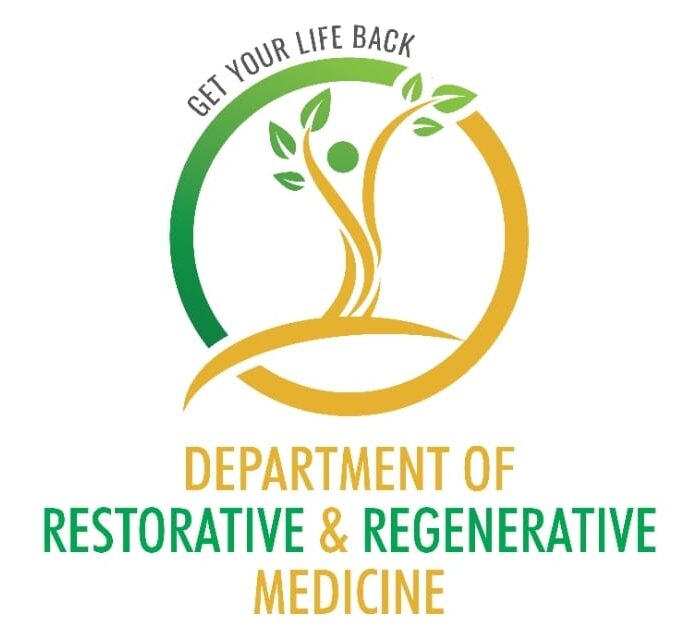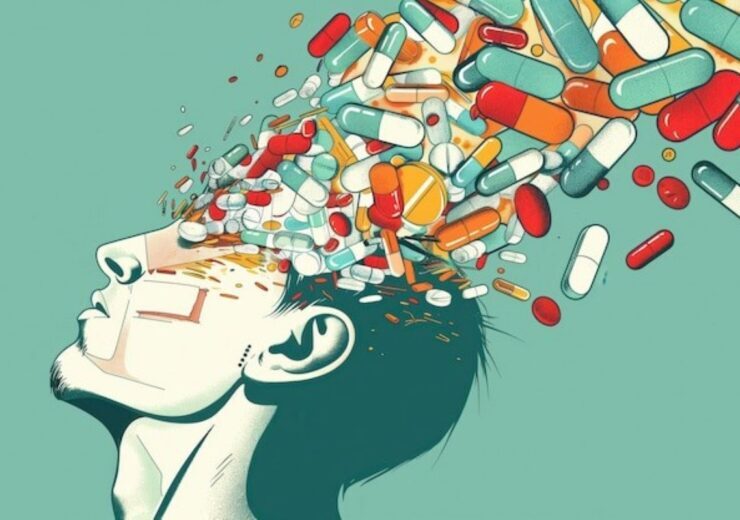Exploring Transcranial Direct Current Stimulation (tDCS) as a Novel Treatment for Depression

Overview of Transcranial Direct Current Stimulation (tDCS)
Millions of people worldwide suffer from the prevalent and crippling mental health illness known as depression. Conventional depression therapy, such as psychotherapy and antidepressants, frequently have drawbacks and differ in their level of efficacy. Transcranial direct current stimulation, or tDCS therapy for depression, has gained popularity as a potential substitute for traditional depression treatments in recent years. This blog examines tDCS therapy for depression, its supporting evidence, and its possible uses in novel depression treatments.
Transcranial Direct Current Stimulation (tDCS) and The Science Behind It
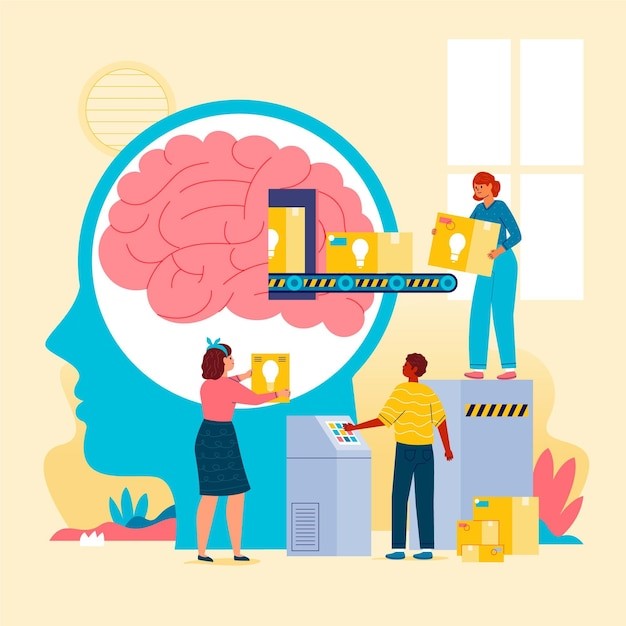
Transcranial direct current stimulation (tDCS) is a non-invasive brain stimulation method that uses electrodes applied to the scalp to provide a mild electrical current to particular brain regions. The main objective of targeted tDCS therapy for depression is to enhance specified parts of the brain’s functioning by modifying neuronal activity.
Neuronal excitability can be influenced by changing the brain’s electrical environment, which is the basis for transcranial magnetic stimulation (tDCS). With tDCS, the probability of neuronal firing can be increased (anodal stimulation) or decreased (cathodal stimulation) by applying a steady, low-intensity current. The aberrant brain activity patterns linked to a number of mental health issues, including depression, can be corrected with the use of this regulation by doctors for TMS depression treatment in Mumbai.
Differences Between tDCS and Other Neurostimulation Techniques
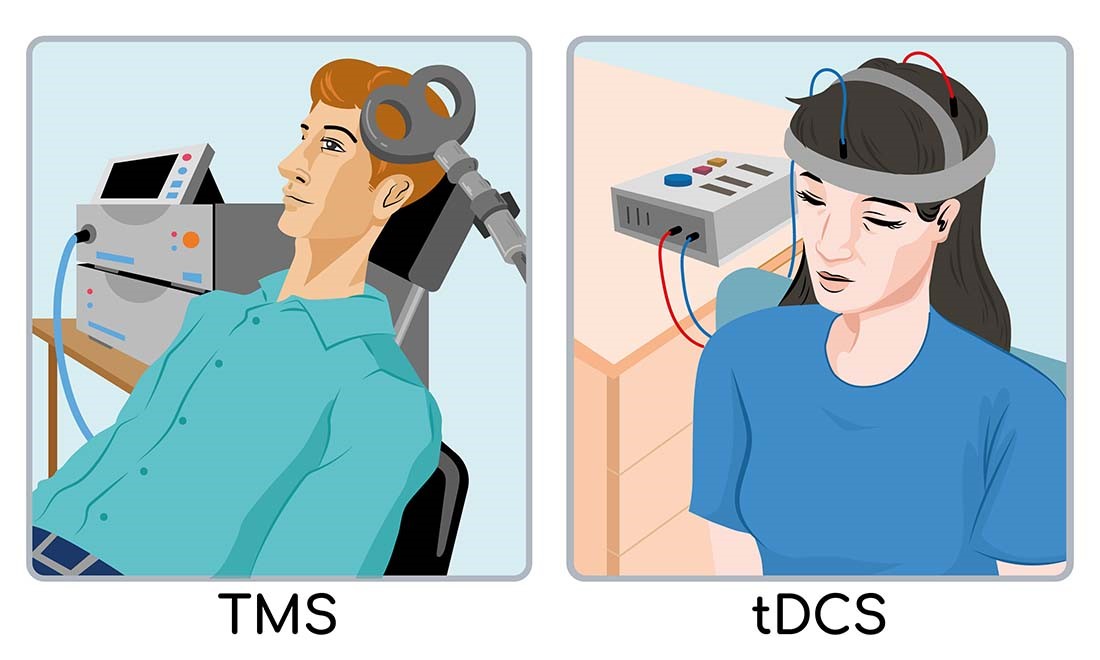
Although transcranial magnetic stimulation (tDCS) is a noteworthy neurostimulation modality, it is important to differentiate it from other methods like electroconvulsive therapy (ECT) and transcranial magnetic stimulation (TMS).
- tDCS vs. TMS: Whereas transcranial DCS provides a modest electrical current directly to the brain, transcranial magnetic stimulation employs magnetic fields to create electric currents in the brain. While tDCS provides wider modulation with a gentler effect, TMS is typically stronger and targeted.
- tDCS vs. ECT: Anesthesia is used for the more intrusive electroconvulsive therapy method, which involves using electrical currents to cause seizures. In contrast to tDCS, which is well-tolerated and non-invasive, ECT is usually reserved for cases of severe, treatment-resistant depression and carries more serious side effects.
Transcranial Direct Current Stimulation (tDCS) for Depression
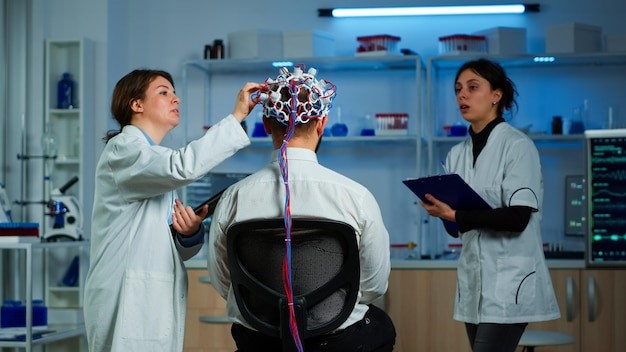
Transcranial Direct Current Stimulation, or tDCS, is becoming known as a ground-breaking novel depression treatments that gives hope to patients for whom conventional medications have failed. The goal of targeted electrical current stimulation (tDCS) is to reduce depression symptoms by modulating neuronal activity in certain brain regions. Researchers and physicians at the hospital for tms for depression in Mumbai are becoming more interested in this non-invasive, safe, and remedy of transcranial direct current stimulation benefits because it offers a fresh approach to treating this widespread mental health issue.
Target Areas in the Brain for Depression Treatment
The prefrontal cortex, a part of the brain linked to mood regulation, is the usual focus of tDCS for the novel depression treatments. Because of its importance in executive function and emotional regulation, the dorsolateral prefrontal cortex (DLPFC) is frequently targeted for stimulation.
Common procedures to improve mood and lessen depression symptoms include cathodal stimulation of the right DLPFC and anodal stimulation of the left DLPFC.
Evidence from Clinical Studies and Trials for tDCS in Depression
The tDCS effectiveness in depression treatment has been examined in a large number of clinical trials and research at the best depression clinic in Mumbai. tDCS has been shown to dramatically improve depressive symptoms in meta-analyses and systematic reviews, especially when paired with conventional depression therapy. Among the important conclusions are:
- Symptom Reduction: Studies have shown that tDCS can lead to a noticeable reduction in depressive symptoms, often comparable to the effects of antidepressant medications.
- Long-Term Benefits: Research done at the hospital for tms for depression in Mumbai indicates that transcranial direct current stimulation benefits may persist beyond the treatment period, suggesting potential for long-term relief.
- Combination Therapy: Combining tDCS with pharmacotherapy or psychotherapy has demonstrated enhanced efficacy, underscoring the potential of integrative treatment approaches by the doctors for tms depression treatment in Mumbai.
Benefits of tDCS for Depression

Transcranial direct current stimulation, or tDCS, has been shown to be beneficial for depression in recent times and tDCS effectiveness in depression for conventional treatments is higher. Numerous transcranial direct current stimulation benefits come with this non-invasive brain stimulation method, such as a good safety record, few adverse effects, and the possibility of long-term depression symptom treatment. tDCS is becoming more and more useful in the fight against depression as research supports tDCS effectiveness in depression and gives hope to people who have not responded well to traditional therapy.
Advantages Over Traditional Antidepressants
Although many people find traditional antidepressants to be useful, they frequently have negative side effects, including weight gain, gastrointestinal problems, and sexual dysfunction. A less problematic alternative is provided by tDCS.
Those who don’t react well to medicine or can’t handle its side effects may find it especially helpful.
Non-Invasiveness and Safety Profile
The non-invasiveness of tDCS is one of its biggest benefits. During sessions, patients can stay awake and attentive, and the process is painless.
Mild and temporary side effects are typical, and they could include mild tingling or itching at the electrode sites. Since tDCS doesn’t cause seizures or call for anesthesia like ECT does, it’s a safer option for a lot of patients.
Potential for Long-Term Relief and Maintenance
Transcranial direct current stimulation (tDCS) has the potential to sustain the reduction of depression symptoms over the long term in addition to offering immediate symptom alleviation. It is a workable long-term treatment plan designed by the best depression specialist doctors in Mumbai because regular booster sessions can assist maintain the advantages.
For many patients, its potential for long-lasting effects without the need for constant prescription is a big plus.
Combining tDCS with Other Depression Therapies
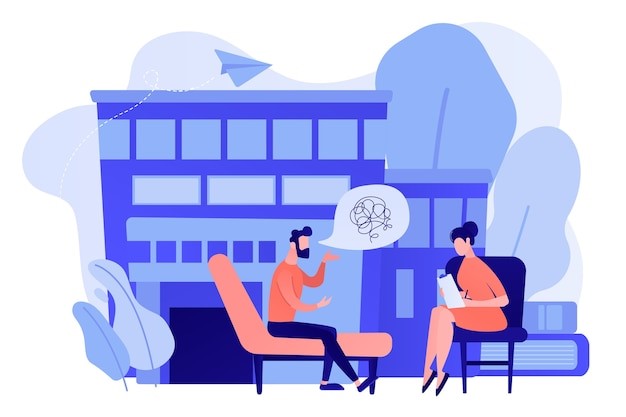
Integrating transcranial direct current stimulation (tDCS) with other therapeutic modalities for depression can significantly enhance treatment outcomes.
With Cognitive-Behavioral Therapy (CBT)
Combining tDCS with cognitive-behavioral therapy (CBT) is one promising approach. tDCS modifies neuronal activity and enhances brain function; CBT targets the thoughts and actions linked to depression.
More significant and long-lasting benefits in mood and cognitive performance may result from this synergy. When compared to patients getting CBT or tDCS alone, patients receiving combined depression therapy frequently report a speedier and more noticeable reduction in depressive symptoms.
With Antidepressant Medications
Transcranial direct current stimulation (tDCS) in combination with antidepressants may provide better therapeutic outcomes. tDCS can enhance the overall antidepressant impact for individuals who only partially respond to medication, possibly lowering the necessary dosage and related adverse effects.
This combination, which targets both the biochemical and electrical elements of brain activity, can be very helpful for people who are resistant to treatment for depression.
With Lifestyle Interventions
Moreover, combining tDCS with lifestyle therapies like physical activity and mindfulness training can support mental health in its whole. Physical activity has been demonstrated to increase brain plasticity and elevate mood, while practicing mindfulness improves stress reduction and emotional control.
These approaches, when paired with targeted cognitive behavioral therapy (tDCS), can produce a holistic treatment plan that addresses mental health from several perspectives, resulting in more substantial and long-lasting alleviation from depression symptoms.
For depression, transcranial direct current stimulation (tDCS) is a new and exciting therapy option. It is a desirable complement to or substitute for conventional treatments due to its non-invasiveness, safety record, and ability to provide long-term relief. With further research, transcranial direct current stimulation (tDCS) may play a major role in managing depression and provide hope to individuals grappling with this difficult illness.
RNR Medicine at Jaslok Hospital’s Neurology Department, best depression clinic in Mumbai, is at the forefront of providing cutting-edge neuromodulation therapies, including tDCS. With a commitment to patient care and the latest advancements in medical science, RNR Medicine offers personalized treatment plans designed by the best depression specialist doctors in Mumbai to meet the unique needs of each individual. To learn more about how tDCS and other advanced therapies can help manage depression, visit our website and explore the future of mental health care.
